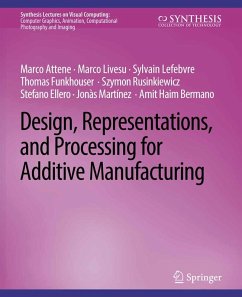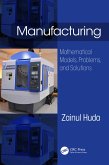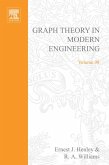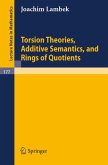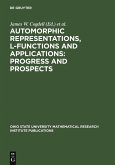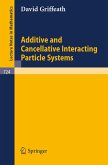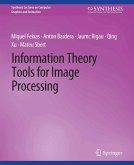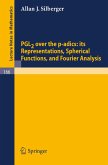Design, Representations, and Processing for Additive Manufacturing (eBook, PDF)

Alle Infos zum eBook verschenken


Alle Infos zum eBook verschenken

Design, Representations, and Processing for Additive Manufacturing (eBook, PDF)
- Format: PDF
- Merkliste
- Auf die Merkliste
- Bewerten Bewerten
- Teilen
- Produkt teilen
- Produkterinnerung
- Produkterinnerung

Hier können Sie sich einloggen

Bitte loggen Sie sich zunächst in Ihr Kundenkonto ein oder registrieren Sie sich bei bücher.de, um das eBook-Abo tolino select nutzen zu können.
The wide diffusion of 3D printing technologies continuously calls for effective solutions for designing and fabricating objects of increasing complexity. The so called "computational fabrication" pipeline comprises all the steps necessary to turn a design idea into a physical object, and this book describes the most recent advancements in the two fundamental phases along this pipeline: design and process planning. We examine recent systems in the computer graphics community that allow us to take a design idea from conception to a digital model, and classify algorithms that are necessary to…mehr
- Geräte: PC
- ohne Kopierschutz
- eBook Hilfe
- Größe: 4.68MB
![Manufacturing (eBook, PDF) Manufacturing (eBook, PDF)]() Zainul HudaManufacturing (eBook, PDF)46,95 €
Zainul HudaManufacturing (eBook, PDF)46,95 €![Graph Theory in Modern Engineering: Computer Aided Design, Control, Optimization, Reliability Analysis (eBook, PDF) Graph Theory in Modern Engineering: Computer Aided Design, Control, Optimization, Reliability Analysis (eBook, PDF)]() Graph Theory in Modern Engineering: Computer Aided Design, Control, Optimization, Reliability Analysis (eBook, PDF)54,95 €
Graph Theory in Modern Engineering: Computer Aided Design, Control, Optimization, Reliability Analysis (eBook, PDF)54,95 €![Torsion Theories, Additive Semantics, and Rings of Quotients (eBook, PDF) Torsion Theories, Additive Semantics, and Rings of Quotients (eBook, PDF)]() Joachim LambekTorsion Theories, Additive Semantics, and Rings of Quotients (eBook, PDF)19,95 €
Joachim LambekTorsion Theories, Additive Semantics, and Rings of Quotients (eBook, PDF)19,95 €![Automorphic Representations, L-Functions and Applications: Progress and Prospects (eBook, PDF) Automorphic Representations, L-Functions and Applications: Progress and Prospects (eBook, PDF)]() Automorphic Representations, L-Functions and Applications: Progress and Prospects (eBook, PDF)132,95 €
Automorphic Representations, L-Functions and Applications: Progress and Prospects (eBook, PDF)132,95 €![Additive and Cancellative Interacting Particle Systems (eBook, PDF) Additive and Cancellative Interacting Particle Systems (eBook, PDF)]() D. GriffeathAdditive and Cancellative Interacting Particle Systems (eBook, PDF)19,95 €
D. GriffeathAdditive and Cancellative Interacting Particle Systems (eBook, PDF)19,95 €- -23%11
![Information Theory Tools for Image Processing (eBook, PDF) Information Theory Tools for Image Processing (eBook, PDF)]() Miquel FeixasInformation Theory Tools for Image Processing (eBook, PDF)40,95 €
Miquel FeixasInformation Theory Tools for Image Processing (eBook, PDF)40,95 € ![PGL2 over the p-adics. Its Representations, Spherical Functions, and Fourier Analysis (eBook, PDF) PGL2 over the p-adics. Its Representations, Spherical Functions, and Fourier Analysis (eBook, PDF)]() Allan J. SilbergerPGL2 over the p-adics. Its Representations, Spherical Functions, and Fourier Analysis (eBook, PDF)28,95 €
Allan J. SilbergerPGL2 over the p-adics. Its Representations, Spherical Functions, and Fourier Analysis (eBook, PDF)28,95 €- -20%11
-
- -22%11
Dieser Download kann aus rechtlichen Gründen nur mit Rechnungsadresse in A, B, BG, CY, CZ, D, DK, EW, E, FIN, F, GR, HR, H, IRL, I, LT, L, LR, M, NL, PL, P, R, S, SLO, SK ausgeliefert werden.
- Produktdetails
- Verlag: Springer International Publishing
- Seitenzahl: 136
- Erscheinungstermin: 1. Juni 2022
- Englisch
- ISBN-13: 9783031025969
- Artikelnr.: 64123679
- Verlag: Springer International Publishing
- Seitenzahl: 136
- Erscheinungstermin: 1. Juni 2022
- Englisch
- ISBN-13: 9783031025969
- Artikelnr.: 64123679
